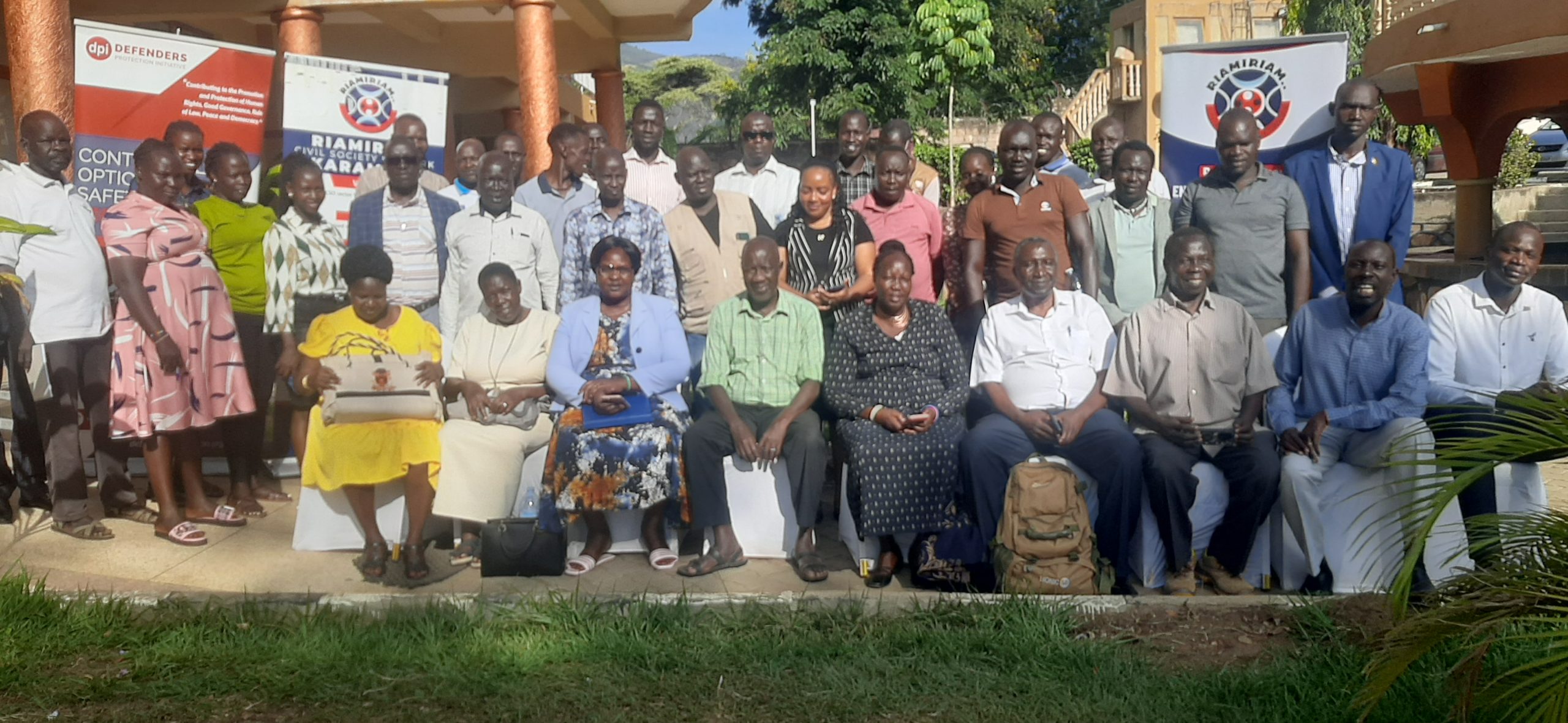
Uganda`s NGO Sector Has Undergone Transformation- Dr. Steven Okello
The NGO Bureau in Uganda has been undergoing significant changes, particularly with the recent rationalization of government ministries, departments, and agencies. the Secretary of the NGO Bureau, Dr. Steven Okello has revealed. sheds light.
While shedding light on the developments and challenges facing the sector, Dr. Okello explained that the NGO Act 2016 has undergone significant changes, noting that the new 7th edition of the principal laws, launched by the Uganda Law Reform Commission on July 1, 2024 and has consolidated all laws enacted by Parliament of Uganda.
“The NGO Act is now Chapter 109, and a recent amendment has removed the requirement for NGOs to register with the Finance Intelligence Authority”, he said.Dr Okello was speaking on Wednesday, 28th May 2025, during the interface between CSOs from Karamoja and the regulators at Hotel Leslona, Moroto.
The regulatory authorities include: Uganda National NGO Bureau, NSSF, URSB, URA, PDPO and the respective DCDOs across Karamoja Districts.
The interface, funded by the Royal Danish Embassy, Embassy of Ireland, Kingdom of the Netherlands, and Embassy of Sweden, attracted participants from nine districts in Karamoja, including Kaabong, Karenga, Abim, Kotido, Moroto, Napak, Nakapiripirit, Amudat, and Nabilatuk.
One of the major challenges facing the sector, according to Dr Okello is the lack of accurate numbers of NGOs and CBOs operating in the country. Dr. Okello notes that the NGO Bureau has been conducting a census of all NGOs in Uganda, and the numbers have fluctuated significantly. “We don’t have an accurate number of NGOs and CBOs operating in the country, and yet there are CBOs that are now more powerful,” he says.
To address this issue, the NGO Bureau is verifying all CBOs and has distributed registers to all districts. Dr. Okello emphasizes that “for you to operate as an NGO or CBO, you must appear in the register.” He also requests stakeholders, such as NSSF, to start paying attention to CBOs, noting that foreigners are not supposed to work in CBOs.
He revealed that the NGO Bureau is also launching an inter-agency forum for all NGOs in the country in August, which aims to improve collaboration and coordination among stakeholders.
“Additionally, the bureau will be hosting regional dialogues to address local issues specific to each region. The first regional dialogue will take place in Moroto in October 2025”, Dr Okello explained.
Dr. Okello highlights the challenges facing the sector, including the drop in funding due to the economic meltdown, COVID-19, and the Trump administration’s executive order. “The funding area for NGOs has dropped down,” he notes.
To improve compliance, the NGO Bureau is automating its processes to reduce the cost of compliance. Dr. Okello explains that “we need to comprehensively ensure compliance by the click of a button.” The bureau is also developing a cooperative governance principle to address issues of micro-management by some NGO leaders.
The NGO Bureau has introduced fines for NGOs operating with expired permits, and NGOs are now required to register six months before expiry. Dr. Okello notes that compliance levels have improved, standing at 62%, and that “compliance also makes employers attract the best employees.”
As the NGO sector in Uganda continues to evolve, Dr. Okello’s insights provide valuable guidance for stakeholders. With the development of a new policy, automation of processes, and improved compliance, the sector is poised for growth and development.



